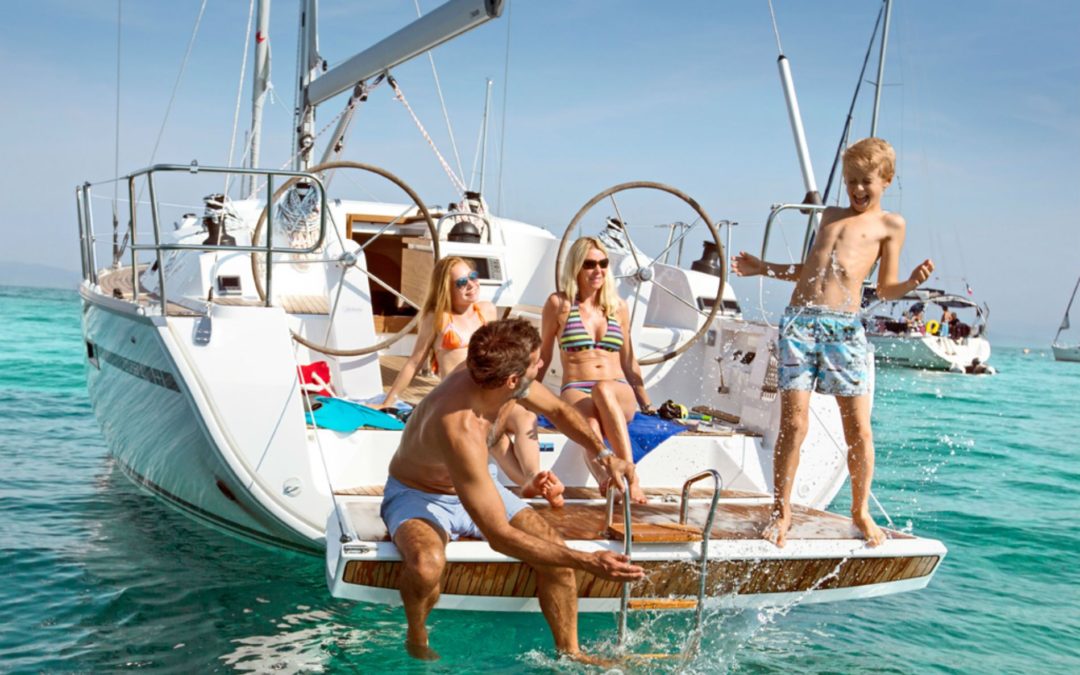Is a Bareboat Charter right for me?
There seems to be a lot of misunderstood facts about Bareboat Charters among charter companies and boat owners alike. In this blog post (maybe a series) I want to look at what a bareboat charter is and the legalities so the reader is able to make an informed decision.
What is a Bareboat Charter?
A Bareboat Charter is a charter where the Charterer (the person chartering the vessel) takes over full operation of the boat for the charter period. The Charterer must maintain the vessel, choose and pay the crew. Additionally it must pay for all expenses of the ship including fuel, food, and insurance.
Making it simple, a Bareboat Charter is one where the customer rents your boat from you and you have minimal say in what happens. It’s similar to a rental agreement of a house or condo. You (Independent contractor) provide a home for a tenant to rent. The tenant gets to choose its bills (expenses) it has and what it will eat each night. As a landlord you would not cook for them or pay their utility bill for them. Additionally an owner of a yacht cannot skipper his or her own boat for hire and charter it as Bareboat. This is referred to as a “passenger for hire” operation.
Is your boat used for commercial use?
The US Coast Guard considers Bareboat Charters as non-commercial use. In a non-commercial operation, the Bareboat Charter is a very common and practical way to lease a vessel that is properly documented and licensed. A Bareboat Charter must accomplish a number of things.
Even though there is no legal requirement that the agreement be in writing, good business practices would suggest this. A written document, whether drafted by a lawyer or hand written by both parties, is evidence of what was agreed upon by the parties. The charter needs to address the parties and the ship. Usually a float plan or navigational areas are limited by the boat owner for liability and insurance coverage reasons. The yacht should be inspected prior to the departure as well as the return of the charter. This will determine if the vessel has been maintained.
Charters for hire vs Bareboat Charter
Timed charters or Charter for hire differs from Bareboat Charter in the sense that use of the boat is leased and not the vessel itself. A Bareboat Charter would be like renting a car from Budget or Dollar. A timed charter would be if you hired a cab for the day, taking the taxi from one location to another. Under these types of charters the owner maintains control and responsibility for the vessel’s operation. Furthermore a timed charter has no control over it or its crew. It is not liable for the negligence of the crew’s operation of the boat.
Uninspected Passenger Vessels- Six-PAC Charters:
As many are aware, any vessel weighing less than 100 tons, carrying less than 6 passengers does not need to be inspected by the US Coast Guard. Any ship weighing over 100 tons but less than 200 tons is able to carry 12 or less passengers uninspected.
OPUV Requirements
The boat owner must have an OPUV (6-PAC) or (12-PAC) operator’s license, issued by the Coast Guard. The requirements for this license are as follows:
- Age 18 or over
- 360 days of underway experience with 90 of those days being in the last 3 years
- physical
- drug test
- eye exam
- valid CPR/First Aid card
- completion of the USCG Exam or approved course
Safety Requirements
The vessel must have the following on board:
- Personal flotation device for each person on board
- one throw able IV device
- whistle/bell
- Two approved B-I or at least one approved B-II type for boats up to 40 feet
- 3 approved B-I type or at least one approved B-I type plus one approved B-II type up to a 65 foot yacht
- visual distress signals for both daytime and night time (3 each)
- proper ventilation for containers containing gasoline engine
- navigation lights
- copy of US Coast Guard navigation rules on board
- pollution discharge placard
- marine sanitation devices type I-III
Undocumented vessels must be registered in the state of principal use. The critical element in a 6-PAC charter is that no more than 6 passengers are permitted. The difficult thing to understand here is what constitutes a “passenger.”
Passengers Services Act
Under the Passenger Services Act, the general definition has been any person other than the vessel’s master, a crew member or any person engaged in the ship’s business. The “for hire” issue involves any consideration flowing from the passenger to the boat’s owner or any person involved with the ship. This consideration has been taken as far as using a company yacht for “business goodwill.” Carried to a logical conclusion, this would require any boat, unless used solely for personal pleasure to be registered and inspected. It does not appear to be the Coast Guard’s policy to go to this extreme however. https://homeport.uscg.mil/Lists/Content/DispForm.aspx?ID=1724&Source=/Lists/Content/DispForm.aspx?ID=1724
Happy Sailing,
“Charter Booker!”
(Charter Booker, manages Blue Ocean Yacht Charters in Key West and writes many of the company’s blogs. He has experience both on the water and off the water helping customers experience the best possible yacht charter. Carrying American Sailing Association certifications with extensive knowledge of boat safety and regulations makes him the charter authority. Call 305-923-4152 and ask for “Charter Booker” when booking your next yacht charter in Key West, Florida.)

